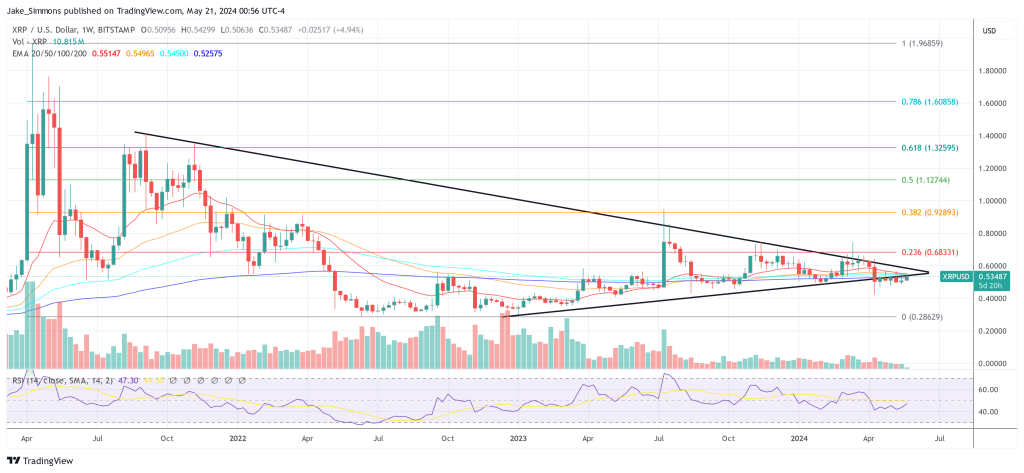ARTICLE AD BOX
The legal battle between Ripple Labs and the US Securities and Exchange Commission (SEC) has intensified with the SEC’s latest court filing, marking the final submission before Judge Analisa Torres of the Southern District of New York deliberates on the remedies phase of this landmark case.
Ripple Vs. SEC: The Final Move
In its filing dated May 20, 2024, the SEC provided a comprehensive rebuttal to Ripple’s request to seal certain financial documents and other evidence crucial to the case. The SEC’s letter to Judge Torres articulates a staunch opposition to Ripple’s motion, particularly concerning the concealment of financial data and contractual terms integral to the Court’s evaluation of appropriate remedies.
The SEC’s opposition hinges on the principle of public access to judicial documents, a cornerstone of legal transparency and accountability. Citing Lugosch v. Pyramid Co. of Onondaga, the SEC emphasizes the historical importance of public access, especially in cases that involve public interest and regulatory enforcement. “The common law right of public access to judicial documents is firmly rooted in our nation’s history,” the SEC forcefully argues in its brief, highlighting the necessity of transparency for public scrutiny and trust.
While the SEC consents to the sealing of five exhibits in their entirety, it contests the company’s request to withhold key financial figures and terms of contracts cited in the remedy deliberations. This includes details that would reveal Ripple’s current financial health, the volume of recent XRP sales, and the specifics of revenue and expenses—all deemed vital for assessing the company’s compliance and determining any potential penalties.
The SEC critically assesses the motives for sealing: “Ripple invites the public to form opinions about the merits of the SEC’s positions. It cannot simultaneously hide from them the evidence on which that position is based,” the SEC stated, pointing to a contradiction in the company’s public communications versus its courtroom requests.
Ripple’s justification for its sealing requests cites the potential harm that public disclosure of sensitive financial details could inflict on its competitive position in the market. However, the SEC counters this by highlighting inconsistencies in Ripple’s argument about the relevance and sensitivity of the information.
The Commission challenges the claim that the sealed information is irrelevant, stating, “Once an item is deemed relevant to the exercise of judicial power, the weight to be given the presumption of access must be governed by the role of the material at issue in the exercise of Article III judicial power.”
The SEC also notes the staleness of some information Ripple wishes to seal, arguing that financial details from years past are unlikely to impact Ripple’s current business operations significantly. “Stale business records cannot support the necessary finding of harm,” the SEC argues, reinforcing its stance on the need for transparency of outdated financial records.
As Judge Torres prepares to make her ruling, the crypto industry watches closely. The stakes are notably high, with the SEC proposing fines and penalties amounting to approximately $2 billion, while Ripple’s counteroffer recommends a maximum penalty of merely $10 million.
At press time, XRP traded at $0.53487.

.png)
 7 months ago
4
7 months ago
4








 English (US)
English (US)